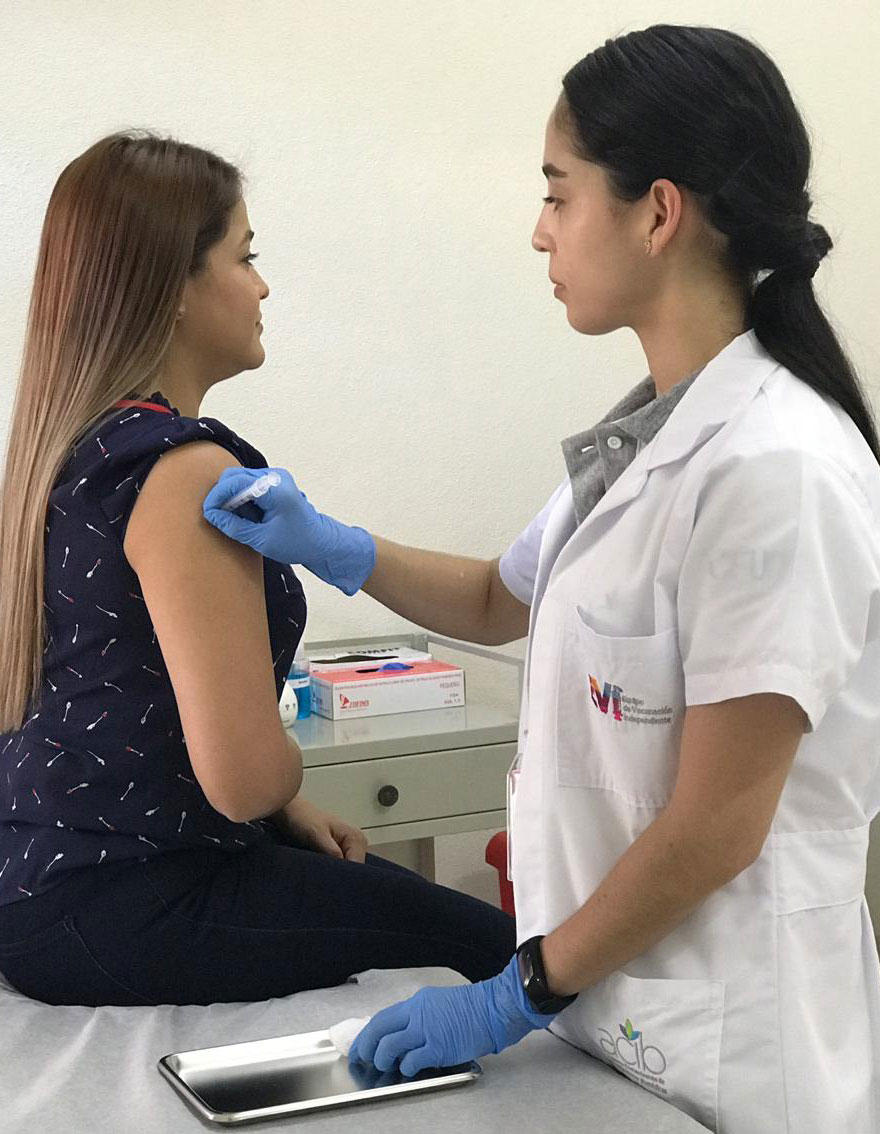Human papillomavirus (HPV) vaccination successfully prevents targeted HPV infections, and related precancerous lesions, and ultimately has the potential to substantially reduce cervical and other HPV-related cancers. Despite the established efficacy and safety of the HPV vaccine, most girls living in areas that bear the greatest risk for cervical cancer are not being vaccinated. The cost and logistical difficulties of the multiple-dose schedule have been a significant impediment to vaccination uptake and the prevention of cervical cancer and its associated mortality.
Public Health Impact
The PRIMAVERA Trial was designed to provide convincing and actionable evidence that a single dose of the HPV vaccine will elicit an immune response sufficient to protect against targeted HPV infections and subsequent neoplasms. A single-dose schedule can potentially simplify vaccine delivery and vaccination program costs, which can ultimately ensure that more girls receive the vaccine.
Study Background and Rationale
In the non-randomized extension of the original Costa Rica HPV Vaccine Trial (CVT), DCEG and Costa Rica (ACIB-FUNIN) investigators reported long-term protection against HPV 16 and HPV 18 infections and stable antibody levels among women who received a single dose of the bivalent HPV vaccine more than a decade earlier. These observations raised the possibility that a single dose of HPV vaccine may offer sufficient durable protection and set the foundation for additional clinical trials to investigate single-dose HPV vaccine protection directly: ESCUDDO (efficacy trial, Clinical trials identifier: NCT03180034), PRIMAVERA (immunobridging trial), and PRISMA (efficacy trial, Clinical trials identifier: NCT05237947).
This research question is also being investigated in other trials, including the DoRIS trial in Tanzania (immunogenicity trial, Clinical trials identifier: NCT02834637), the KenSHE trial in Kenya (efficacy trial, Clinical trials identifier: NCT03675256), and the HANDS HPV trial in the Gambia (immunogenicity trial, Clinical trials identifier: NCT03832049).
Study Design
The PRIMAVERA study is a non-randomized, open-label, clinical trial comparing one dose of the bivalent HPV vaccine (Cervarix®) in girls to three doses of the quadrivalent HPV vaccine (Gardasil®) in women. The trial enrolled 620 girls aged 9–14 years and 620 women aged 18–25 years.
The initial vaccination was administered at the baseline study visit and participants received either the first dose of Gardasil® or the single dose of Cervarix®. Women received the second and third doses of Gardasil® at two and six months following their initial baseline visit.
Blood was collected from all participants at the 12-, 24-, and 36-month follow-up visits. For participants in the Cervarix® group, blood was also collected at a follow-up visit one month after vaccination. Each girl was expected to have five study visits, one for vaccination and four follow-up visits. Each woman was expected to have six study visits, three for vaccination and three for follow-up.
PRIMAVERA was designed to provide earlier and complementary results to the definitive ESCUDDO Efficacy Trial that evaluates the vaccine efficacy for a one-dose regimen against virologic outcomes in ~20,000 girls aged 12–16 years, which is underway in Costa Rica.
Results & Publications
We found HPV16 and 18 seropositivity approached 100% in both trial arms. The geometric mean of the antibodies levels for girls was non-inferior for HPV18 but inferior for HPV16. Immunogenicity comparable to that affording protection in an external clinical trial indicates that girls who received a single dose of the bivalent HPV vaccine in our trial are presumably protected against HPV infection and subsequent disease.
The PRIMAVERA trial, along with immunogenicity bridging to an external clinical trial, provides additional evidence that subunit vaccines with repetitive structures elicit antibody responses likely sufficient to confer protection. As we were unable to prove single dose noninferiority in the immune response to HPV16, we will need to focus on trials that directly evaluate single dose HPV vaccine efficacy, such as the KENSHE, ESCUDDO and PRISMA trials. The accumulated evidence that one dose is efficacious continues to support the current WHO recommendation, with enormous potential public health potential to facilitate global HPV vaccination and achieve cervical cancer elimination goals.
Publications
Cortés B, et al. Human papillomavirus (HPV) type 16 and type 18 antibody concentrations after a single dose of bivalent HPV vaccine in girls aged 9–14 years compared with three doses of quadrivalent HPV vaccine in women aged 18–25 years in Costa Rica (PRIMAVERA): a non-randomised, open-label, immunobridging, non-inferiority trial. Lancet Infect Dis. 2025
See the PRIMAVERA trial on Clinicaltrials.gov (NCT03728881).
PRIMAVERA is supported by the NCI, the Gates Foundation, and Cancer Research UK.
Requests for PRIMAVERA Data and Specimens
We encourage collaborations with external investigators. Please review the instructions for requesting data and specimens on the CVT page.
